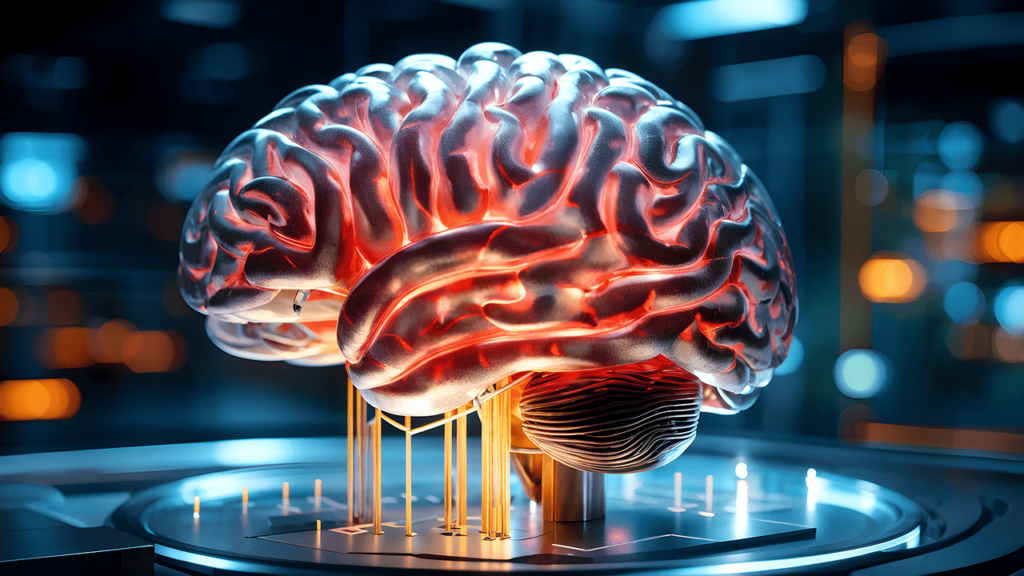What if you could enhance your cognitive function and memory with just a few simple additions to your diet? The secret lies in nature, where herbs have been used for centuries for their potential brain-boosting properties. Let’s explore some of the most effective herbs that may help improve your brain health.

The Importance of Brain Health
Maintaining a sharp mind is essential as you age; it influences your clarity of thought, memory retention, and overall cognitive abilities. Research shows that certain herbs can support brain health and help mitigate cognitive decline. By incorporating these natural remedies into your life, you not only nourish your body but also your brain.
Why Choose Herbs for Brain Health?
Herbs are often easier to integrate into your daily routine than other supplements. They can be added to meals, steeped for tea, or taken as tinctures. Plus, many herbs have a long history of safe use, which makes them a trustworthy option for enhancing your cognitive function.
Ginkgo Biloba: The Ancient Memory Booster
Ginkgo Biloba has been revered in traditional medicine, particularly in Chinese practices, for its potential to improve cognitive function. This herb is known for its ability to improve blood circulation, which in turn can increase the oxygen supply to the brain.
Benefits of Ginkgo Biloba
- Cognitive Function: Regular consumption may help enhance memory and concentration.
- Antioxidant Properties: Ginkgo contains flavonoids and terpenoids, which combat oxidative stress.
- Mood Enhancement: Some studies suggest it may provide support for mood and anxiety levels.
How to Use Ginkgo Biloba
You can find Ginkgo Biloba in capsules, teas, or liquid extracts. It’s generally recommended to consult a healthcare provider to find the right dosage for you, especially if you are taking other medications.
Bacopa Monnieri: The Cognitive Enhancer
Often referred to as Brahmi, Bacopa Monnieri has been used in Ayurvedic medicine for centuries. It is believed to enhance brain function, improve memory retention, and reduce stress levels.
Benefits of Bacopa Monnieri
- Memory Improvement: Bacopa has shown compelling evidence in enhancing memory acquisition and retention.
- Stress Reduction: This herb can help alleviate anxiety and stress, which are detrimental to cognitive health.
- Neuroprotective Effects: It supports the repair of damaged neurons and may even enhance new neuron formation.
How to Use Bacopa Monnieri
Bacopa is typically available in powder, capsule, or tincture form. It is most effective when taken consistently over a period of several weeks, often in doses of 300-600 mg per day.
Rosemary: The Aromatic Memory Herb
Rosemary isn’t just a fragrant seasoning; it has significant cognitive benefits too. This herb has long been associated with memory improvement, and its aroma may even stimulate brain activity.
Benefits of Rosemary
- Memory and Concentration: Research suggests that the aroma of rosemary can enhance memory retention.
- Neuroprotective Properties: The antioxidants in rosemary can protect against neurodegenerative diseases.
- Mood Enhancement: Its uplifting scent can also improve mood and overall cognitive performance.
How to Use Rosemary
You can use fresh or dried rosemary in cooking, or steep it as a tea. Essential oils can also be inhaled or diffused to enjoy its cognitive benefits throughout the day.

Ashwagandha: The Stress Reliever
Often called Indian Ginseng, Ashwagandha is another powerful herb with brain-boosting potential. It’s primarily known for its adaptogenic properties, helping to counteract stress and improve mental clarity.
Benefits of Ashwagandha
- Stress and Anxiety Reduction: This herb helps lower cortisol levels, which can adversely affect cognitive function.
- Cognitive Health Improvement: Regular use may improve memory and cognitive performance.
- Mood Stabilization: Ashwagandha may provide emotional support by enhancing mood.
How to Use Ashwagandha
Ashwagandha is typically found in powder or capsule form. A common dosage ranges from 300-600 mg of standardized extract, though consulting with a healthcare provider is advised for personalized recommendations.
Ginseng: The Energy and Focus Herb
Ginseng has been used traditionally to boost energy levels and improve focus. It’s well-regarded for its ability to enhance cognitive performance, especially during stressful situations.
Benefits of Ginseng
- Increased Energy: Ginseng can help combat fatigue and enhance overall energy levels.
- Cognitive Performance: Some studies indicate it can help improve attention and mental activities.
- Stress Adaptation: Ginseng supports the body in adapting to stress, maintaining your focus.
How to Use Ginseng
Ginseng is available in many forms, including tea, tinctures, and capsules. A typical dosage yields between 200-400 mg of extract daily.

Turmeric: The Golden Spice for Brain Health
Turmeric, often celebrated for its anti-inflammatory properties, offers significant brain-boosting benefits, largely due to its active compound, curcumin. This vibrant yellow spice has demonstrated the ability to promote neurogenesis—the formation of new neurons.
Benefits of Turmeric
- Anti-Inflammatory Effects: Reduces inflammation in the brain, which is linked to various neurodegenerative diseases.
- Antioxidant Properties: Protects against oxidative stress, aiding in long-term cognitive health.
- Potential Mood Stabilizer: Curcumin has been linked to improved mood and reduced symptoms of depression.
How to Use Turmeric
Incorporate turmeric into your cooking, or consider taking it in capsule form. It’s important to pair it with black pepper, which enhances absorption by up to 2000%.
Peppermint: The Refreshing Cognitive Booster
Peppermint isn’t just a flavoring agent; it’s also associated with enhanced cognitive performance. The menthol in peppermint can invigorate the mind and improve memory recall.
Benefits of Peppermint
- Cognitive Enhancement: Studies show that peppermint can improve memory and alertness.
- Mood Boosting: Its invigorating scent can enhance concentration and elevate mood.
How to Use Peppermint
Peppermint tea is a popular choice. Inhale the aroma of peppermint essential oil or use it in cooking to help elevate your mental clarity throughout the day.

Schisandra: The Adaptogenic Berry
Schisandra is a lesser-known herb, but it packs a punch when it comes to cognitive health. It is classified as an adaptogen, which means it helps the body manage stress.
Benefits of Schisandra
- Stress Management: Supports your body’s ability to adapt to stressors, positively impacting cognitive performance.
- Cognitive Improvement: Some studies suggest it enhances information processing and mental performance.
- Energy Levels: It may help improve fatigue, contributing to better focus and concentration.
How to Use Schisandra
You can find Schisandra berries in powdered form or as a tincture. It’s often suggested to take around 1-2 grams of the powdered herb daily.
Making the Most of Your Brain Boosting Herbs
Integrating these herbs into your lifestyle can be as simple as adjusting your cooking habits. Consider the following tips to maximize the benefits:
Craft Delicious Herbal Teas
Mix and match your favorite brain-boosting herbs to create delightful teas. For instance, a blend of rosemary, peppermint, and ginkgo can provide a refreshing way to start your day.
Enhance Your Meals
Add herbs like turmeric and ginger to your daily cooking. They not only add flavor but also deliver a nutritional punch that benefits your brain.
Mindful Cooking and Eating
As you incorporate these herbs, practice mindfulness. Pay attention to the aromas, flavors, and how they make you feel. This can enhance your overall experience and engagement with food.
Consider Herbal Supplements
If convenience is key, you may wish to explore high-quality herbal supplements. Just be sure to choose reputable brands and consult with a healthcare professional to ensure proper usage.

The Timing Matters
While adding herbs to your diet is beneficial, timing can also enhance their effects. For instance:
- Morning: Start with cognitive enhancers like Ginkgo Biloba and Bacopa to jumpstart your day.
- Afternoon: Recharge with invigorating peppermint or ginseng to maintain focus.
- Evening: Wind down with relaxing herbs like Ashwagandha to support stress relief and restful sleep.
When to Exercise Caution
It’s vital to approach herbal remedies with care. While many herbs are safe, some may interact with medications or have side effects. Always consult with your healthcare provider before starting any new herbal regimen, especially if you are pregnant, nursing, or have underlying health conditions.
Potential Side Effects to Watch For
| Herb | Potential Side Effects |
|---|---|
| Ginkgo Biloba | Upset stomach, headache, dizziness |
| Bacopa Monnieri | Digestive issues, fatigue |
| Rosemary | Allergic reactions in sensitive individuals |
| Ashwagandha | Drowsiness, gastrointestinal upset |
| Ginseng | Insomnia, headaches, digestive problems |
| Turmeric | Nausea, diarrhea, increased bleeding risk |
| Peppermint | Heartburn, allergic reactions |
| Schisandra | Gastrointestinal discomfort |
Conclusion: Your Brain Deserves the Best
Your brain is the command center of your body, and taking care of it should be a priority. By integrating these brain-boosting herbs into your daily routine, you can enhance cognitive functions and overall well-being. Start small—maybe choose one or two herbs and gradually add more as you find what works best for you. Nourishing your mind shouldn’t feel like a chore; it should be an enjoyable journey toward better mental clarity and health. The power to uplift your cognitive function is within reach, nestled within the delightful herbs that nature provides. So why not act today? Your brain will thank you!